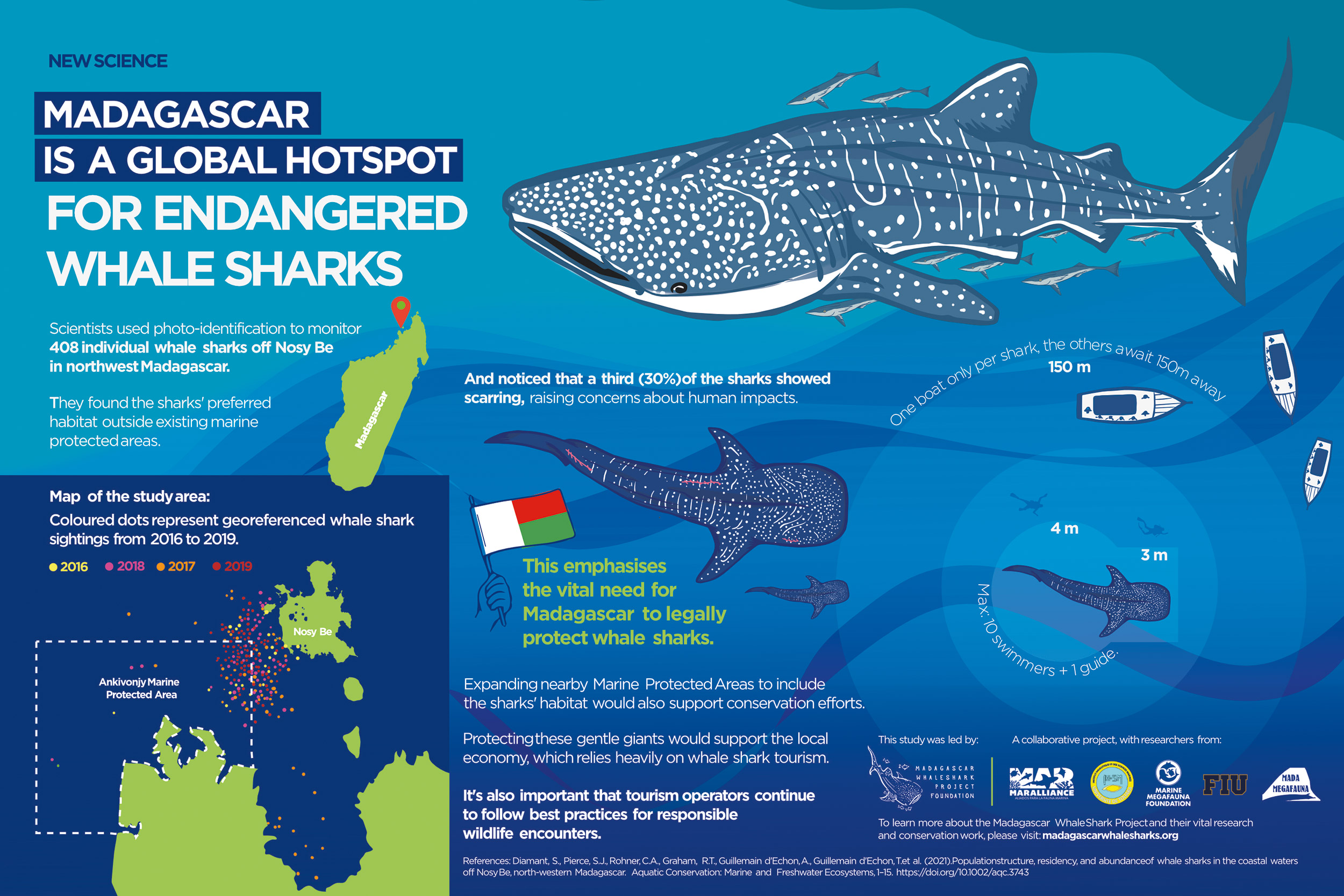Research
Scientific data collection
Science as a tool for conservation
The Madagascar Whale Shark Project’s main scientific objective is to establish the occurrence, residency, and population structure of whale sharks off Nosy Be, Madagascar.
This is achieved through the collection of standardised sighting data, such as the GPS location, size and gender of all individuals, coupled with photo-identification for every encountered shark. We also collect small skin samples to examine diet and movements using biochemical markers (stable isotopes and fatty acids), along with population genetics and genomics studies, collaborating with multiple scientific institutions. We are also tracking movements through satellite and acoustic tags.
Our focus

Whale shark photo-identification
A unique non-invasive global conservation effort
Our team collects photo-identification data for each encountered whale shark, which is then analysed through a unique algorithm adapted from NASA’s star-mapping telescopes. Photos of whale shark spot patterns (left-side) are collected throughout the Indian Ocean, and further afield, then are uploaded onto a global online database of whale shark sightings (www.whaleshark.org). This enables us to investigate the connectivity of Madagascar to other regional aggregations through the movements of individual sharks. So far, we have identified more than 525 individual juvenile whale sharks; yet, none of these individuals have been spotted elsewhere in the world.
Through this work, we provide information necessary for appropriate management measures in Madagascar and the Western Indian Ocean through publications and data sharing.
Want to contribute data as a citizen scientist? Check out how here.
Scientific publications
-

Diamant et al. 2016 Download
Download -

Diamant et al. 2018 Download
Download -

Ziegler et al. 2021 Download
Download -

Diamant et al. 2021 Download
Download -

Reynolds et al. 2021 Download
Download -

Womersley et al. 2022 Download
Download -

Araujo et al. 2022 Download
Download -

Diamant et al. 2022 Access
Access -

Womersley et al. 2024 Download
Download -

Reynolds et al. 2024 Download
Download -

Womersley et al. 2024 Download
Download -

Diamant et al. 2025 Download
Download -

Sequeira et al. 2025 Download
Download


